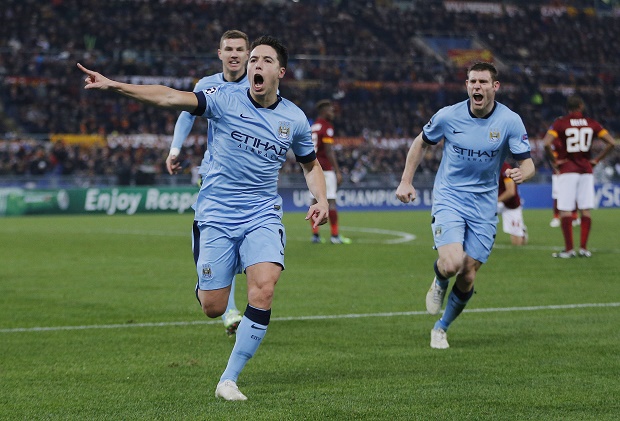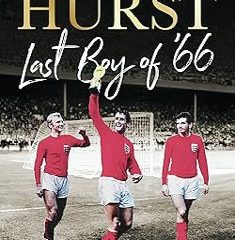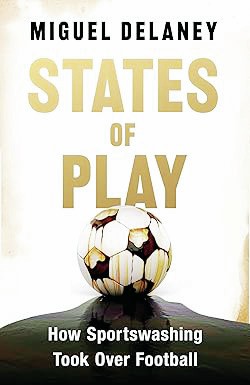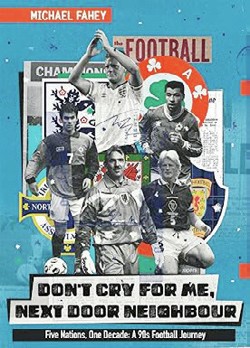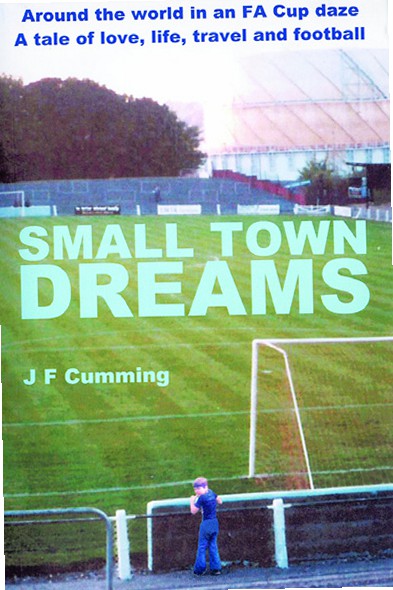
SMALL TOWN DREAMS, BY JF CUMMING, PRICE £12.99, RATING OUT OF 10: 9
HE’S a Wycombe Wanderers fanatic and had always been desperate for his team to go on a magical FA Cup run – or just reach the fourth round.
But the one time it happened, James Cumming was travelling around the world with his girlfriend Cathy on a trip of a lifetime and missed all the key matches.
And while those events happened 15 years ago, they still linger in his memory to this day – and so he decided to write a book to tell the story.
Small Town Dreams is the result, a meaty 400-plus page tome that combines the Chairboys’ FA Cup heroics – they went all the way to the semifinals before losing to eventual winners Liverpool -with his own travel adventures.
“I just felt I had a really good story – the combination of the travelling and the amazing feats that season,” he told our sister publication, The Football League Paper. “I had never seen us get past the third round and we’ve never done it since. The story didn’t diminish with time.
“The closest we’ve got to making the fourth round again was when we played Aston Villa in a third round replay last season – they couldn’t beat anyone but still beat us!”
Cumming spent 18 months writing his book and has self-published it. It is a humorous tale that will have readers chuckling. Naturally, it will be of particular appeal to Wycombe fans, though the fact it is not a ‘straight’ football books means it can have wider appeal.
The 44-year-old accountant said: “Everyone who has spoken to me has been really positive about the book. Even people who don’t like football have told me they really enjoyed it.
“Wycombe have been very good, too. They had me down and I did a book signing on the first day of the season. I was pretending to be a new signing on the pitch!
“I hope the people who I’ve grown up with at Wycombe Wanderers like the book.”
Late Tackle is pretty sure they will. Although the early part of the book is a little slow-going, it does set the scene well and goes a long way to explaining Cumming’s devotion to the Chair boys.
And when the travelling starts, the book picks up pace. Wherever he is in the world, whether it be Thailand, China or Australia, he’s eager to find out what’s happening with his beloved Wycombe – and amazed when they keep progressing in the Cup.
He also gives some description of the matches and how the people back home are savouring the magic of the cup run, with a bit of poetic licence thrown in.
Yet there is plenty about the places he visits and the people he meets, too, with his time in China particularly well covered.
Cumming’s opportunites to see his favourite team are more limited than when he was a youngster. He’s living in Helensburgh, near Dumbarton, in Scotland these days. But you know he’d love Wycombe to go on another cup run – and this time be around to witness it in person.
-John Lyons

SATURDAY, 3PM -50 ETERNAL DELIGHTS OF MODERN FOOT-BALL, BY DANIEL GRAY, PUBLISHED BY BLOOMSBURY, PRICE £9.99, RATING OUT OF 10: 8
DANIEL GRAY’S latest book ‘Saturday, 3pm -50 Eternal Delights of Modern Football’ is a celebration of what makes football so special.
Those golden moments that illuminates a football supporter’s life. These short vignettes of prosepoetry capture the essence of what is still good in the game. What may seem mundane to non-football lovers such as: ‘Seeing a ground from the train’; ‘Getting the fixture list’; ‘Listening to the results in a car’; ‘The first day of the season’ and so on are all rightly identified as a significant part of the football experience.
It is a short read at 144 pages but it is a satisfying book. It is lovingly crafted and can easily be read in one sitting, but you may want to take your time and savour each short chapter before the next delight is revealed.
Gray is a fan of J.B. Priestley’s writing and his ‘through a turnstile into… a more splendid kind of life’, from The Good Companions is his favourite piece of football writing.
Saturday, 3pm, is inspired by Priestley’s ‘Delight’, a non-fiction endeavour in which a self-confessed “Grumbler’ imparts all that is good in the world.
Gray’s homage goes a long way to explaining why football is so important in many people’s lives.
A recurring theme throughout the book is the escapism that football provides. In ‘Carrying on regardless’ he identifies that we use the match as an escape from everyday life:
“We supporters have our refuge from everything wretched, vicious reality hurls at us. Inside the Stadium, we are protected, and removed from real life.
“We are a child with her hands over her ears refusing to believe in school”.
The game is certainly the fixed anchor, which keeps fans going through a hard week of work or study. The match is a short holiday from real existence. Gray calls it ‘a time for blissful and infuriating distraction’.
The author is a true football fan whose authentic voice accurately describes those extra special times. For example, the fans’ shared experience in ‘Watching an away end erupt’:
“What makes it so good to watch is the anarchy of movement. Berserk limbs convulse. It is drunken nightclub dancing but on tightly-tiered rows. Hands are not raised for musical notes, but fists are held to the sky in salute of whichever God gave us goals away from home.”
Gray’s prose-poetry is at its best when describing those shared football experiences such as ‘Listening to the results in a car’:
“To listen to the results in a confined space of a car remains therapeutic. It is the shipping forecast for us football fans”.
Also when describing ‘Outfield players in goal’:
“For some reason, a goalkeeper’s shirt is always too big for an outfield player. It flaps baggily in the wind, and laps towards the ends of his shorts. He pulls on gloves drenched heavy by sweat, yanking Velcro wrist straps tight with his mouth, and only then begins to tuck in his shirt. It is like shoving a flag into a drain and when he is finished, he still resembles a schoolboy dressed from a lost-property box. Once he has jumped up to demonstrate – to himself as much as anyone else – that he can reach the crossbar, play can begin”.
This book reminds us all of the innocent pleasures of the beautiful game and it provides a wonderful antidote to the money-sodden excesses of the modern game.
-Ian Aspinall

THE ROAR OF THE LIONESSES – WOMEN’S FOOTBALL IN ENGLAND, BY CARRIE DUNN, PUBLISHED BY PITCH PUBLISH-ING, PRICE £9.99, RATING OUT OF 10: 8
ENGLAND’S heroic displays in last year’s World Cup in Canada gave women’s football a massive boost.
The performances of the likes of skipper Steph Houghton, Lucy Bronze and Fran Kirby caught the public imagination and, ultimately, the Lionesses returned home with hard-won bronze medals.
The success of Mark Sampson’s troops may not have come as much of a surprise to those who have followed women’s football closely over the years, but to newcomers to the women’s game in this country it was an eye-opener.
But one of the keys is how you try to build on that raised profile, that extra interest.
In The Roar of the Lionesses, freelance sports journalist and author Carrie Dunn takes a wider look at the sport in England – and the challenges players and clubs face.
One of the best things about this book is that it doesn’t just feature the big-name stars or the most powerful clubs in the land, although there is sufficient coverage of them.
It also takes a look at clubs lower down the ladder, whether that be in Women’s Super League Two or the Women’s Premier League. There are interviews with chairmen, general managers, administrators and players about what it’s really like in women’s football now.
There are different snap shots of clubs at different levels. While some clubs and players are fully professional, others lower down are still playing just for the love of the game.
The book also shines a light on some of the dangers facing women’s football. Over the last few years, the professional game has taken off and there is more money involved.
Whereas in the past there was no need for agents, suddenly they have rushed in and at times given clubs headaches with demands for their players, who naturally, as professionals, want to be well rewarded.
Another issue that comes up in the book is the scheduling of matches. In the Women’s Super League, there have been big gaps between matches this season and clubs have complained of a difficulty in maintaining momentum.
Another drawback to that is that supporters don’t get into a routine of going to watch their team. There isn’t that guaranteed home game every couple of weeks and it makes it harder for clubs to widen their fanbase.
What does come across in the book is that young girls do now have role models to look up to and that there is now a chance for them to make a career from football.
Carrie Dunn captures the enthusiasm and love for football across the country. There may be problems along the way and hurdles to overcome, but the overall picture is bright.
-John Lyons



Book Reviews
Book Review: Chris Towers finds right mix

Book Reviews
Book Review: Sir Geoff Hurst hits net



